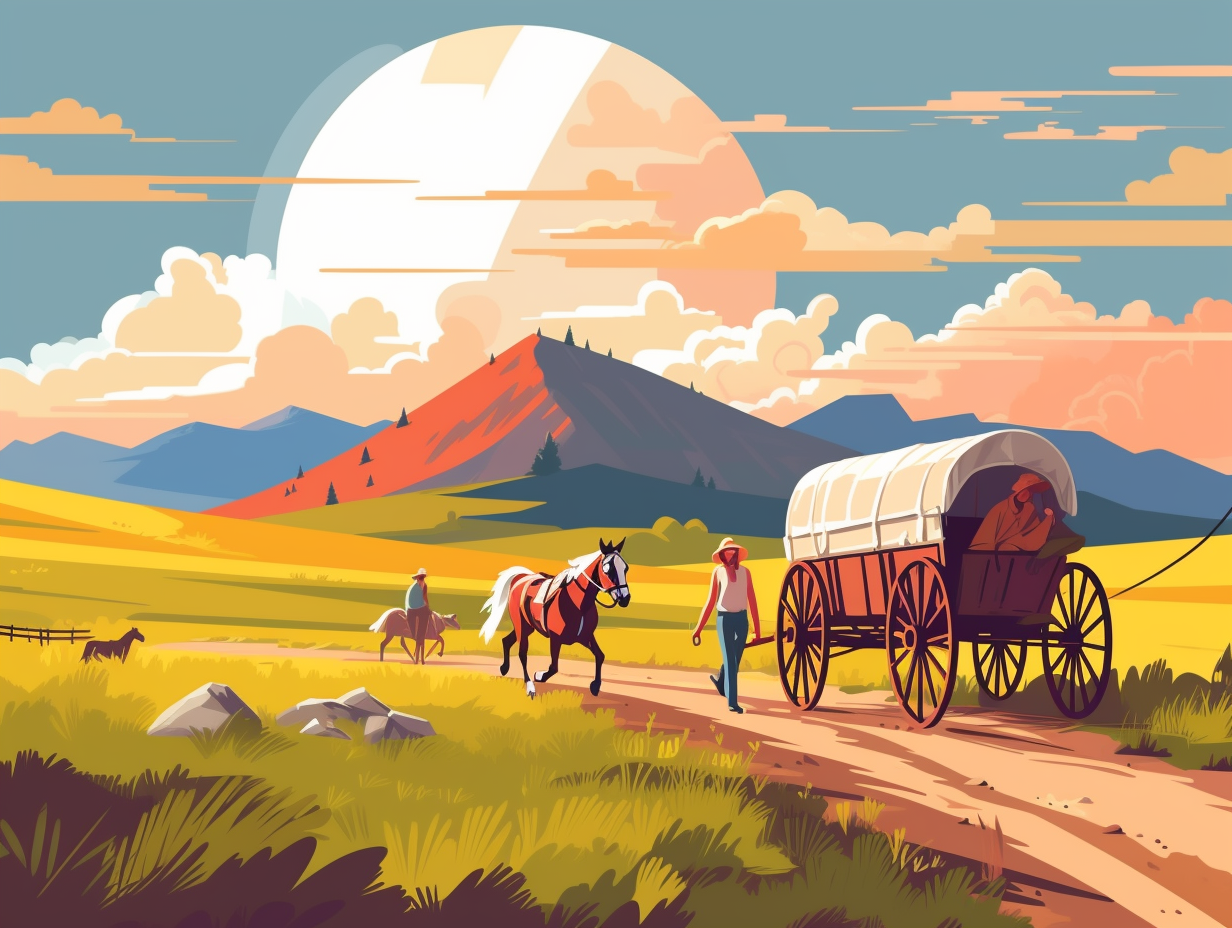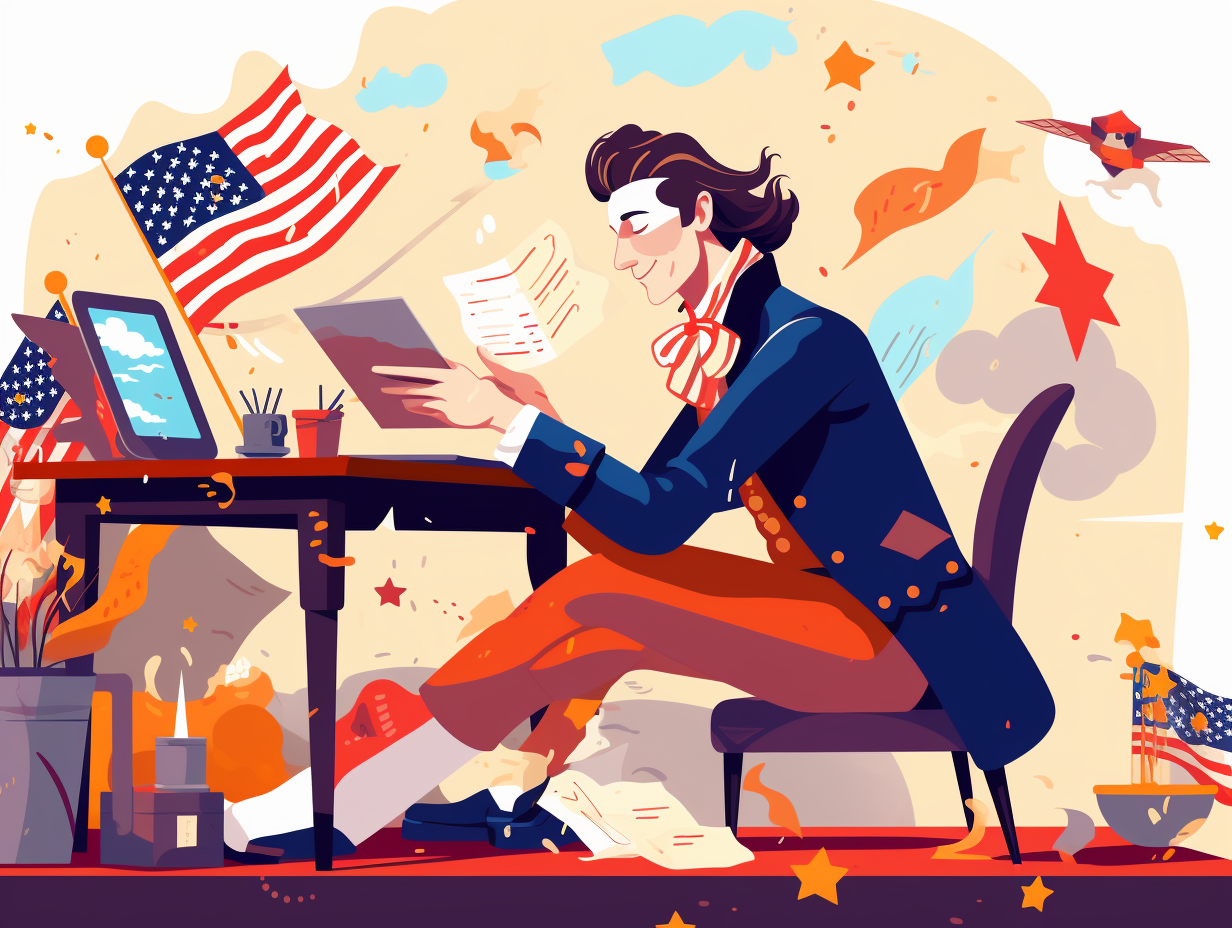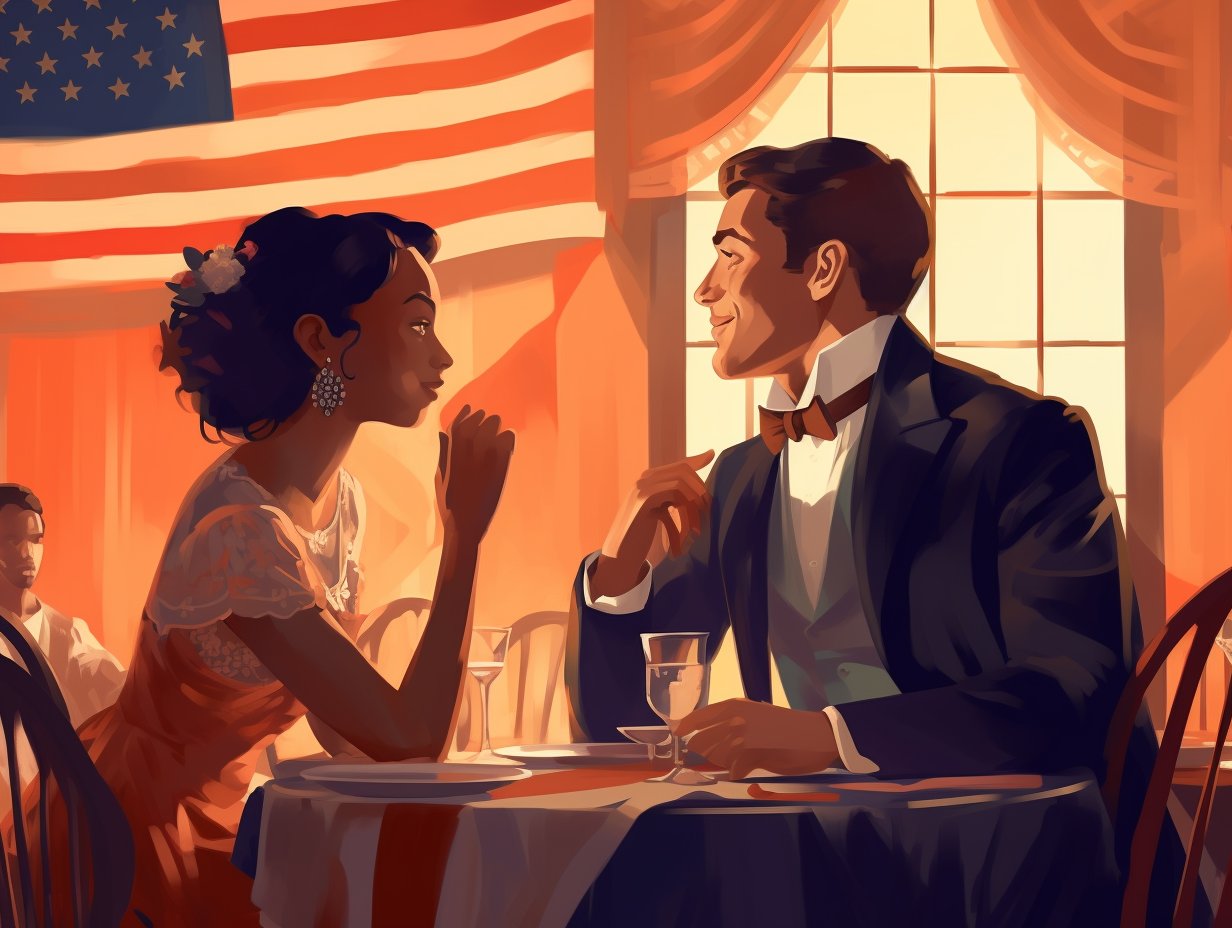Discover the Top 14 Surprising Fun Facts About the Stamp Act: Uncovering the Hidden History!
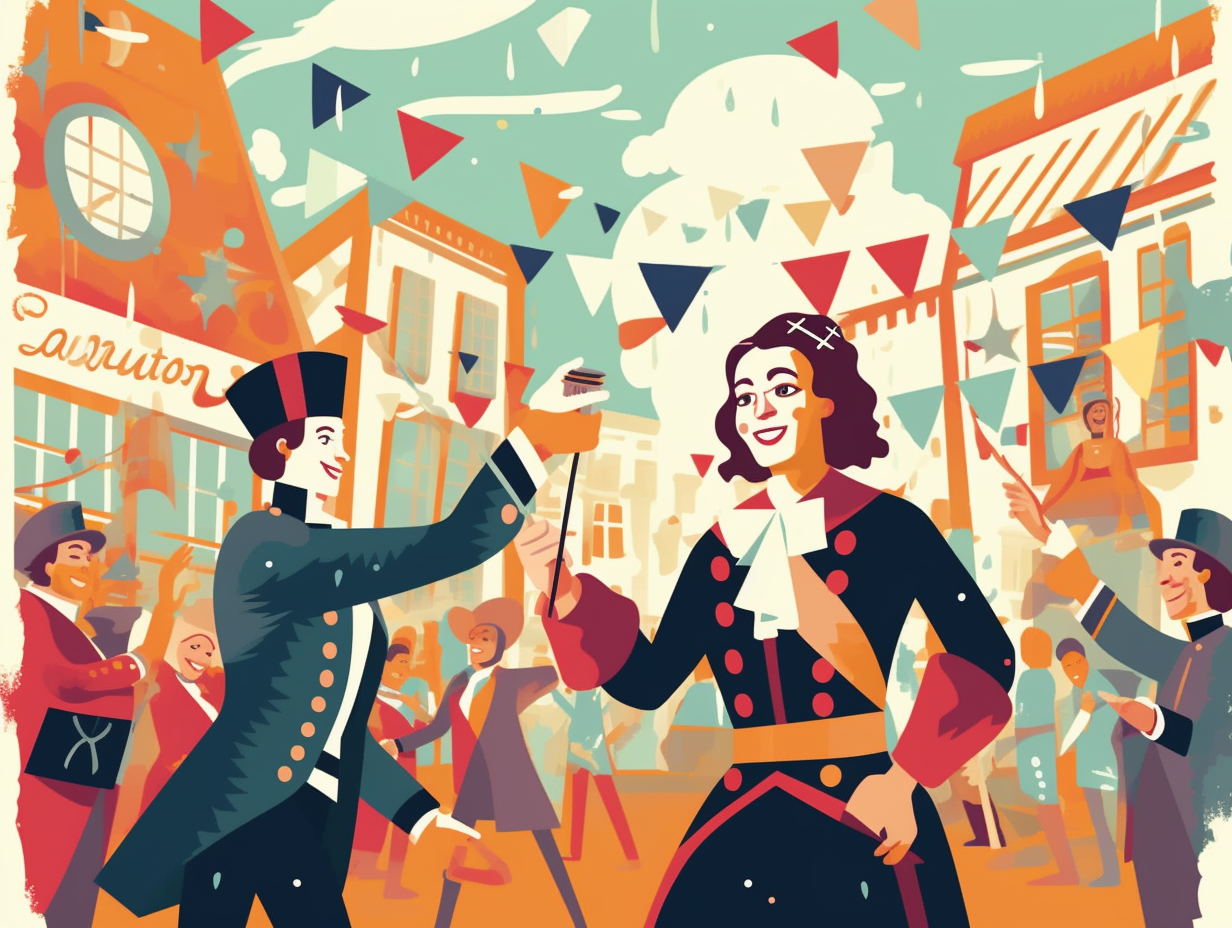
1. Red Bull Rebels
Before the Sons of Liberty went full-blown superhero in avenging the injustice of taxation, these secretive rebels showed how to rock the British boat like a teenager on Red Bull: The Stamp Act led to the formation of the Sons of Liberty, who successfully intimidated all the British-appointed stamp agents into resigning before the tax could even be enforced, ultimately leading to the Stamp Act Congress and the historic "Declaration of Rights and Grievances" that contested taxation without representation.
Source => loc.gov
2. Costly Cat Memes
Imagine a world where "Liking, Retweeting, and Forwarding" your favorite cat meme could cost you some pretty penny: The Stamp Act required all printed documents in the American colonies to bear a pricey revenue stamp, causing mass protests, boycotts of British imports, and even mock funeral processions, as citizens fought for their rights as Englishmen and the "taxpayers' struggle" was real!
Source => loc.gov

Did you know Thomas Jefferson had a pet mockingbird that freely roamed his office, serenading him with its melodies? Discover more about this unique bond between a president and his feathery friend!
=> Fun Facts about History
3. Assembly's Quartering Tango
Talk about playing hard-to-get: New York's colonial Assembly tangoed with a little game of "I'll give you some money for quartering troops, but I won't actually let them stay!" This led to a kerfuffle that left one colonist wounded and Parliament ready to suspend their powers, only to backpedal when the Assembly gave in and contributed to the troops' lodging expenses.
Source => loc.gov
4. Sons of Liberty: Stamp Collectors
Before the Sons of Liberty were the original bros of rebellion, sipping tea and dunking biscuits in Boston Harbor, they were stamp collectors of a different kind: The Stamp Act not only faced fierce opposition from the American colonies but also led to the formation of secret societies like the Sons of Liberty, the Stamp Act Congress, and the drafting of the "Declaration of Rights and Grievances," which protested taxation without representation and asserted the equal rights of American colonists – all marking a turning point in colonial resistance against British rule.
Source => loc.gov
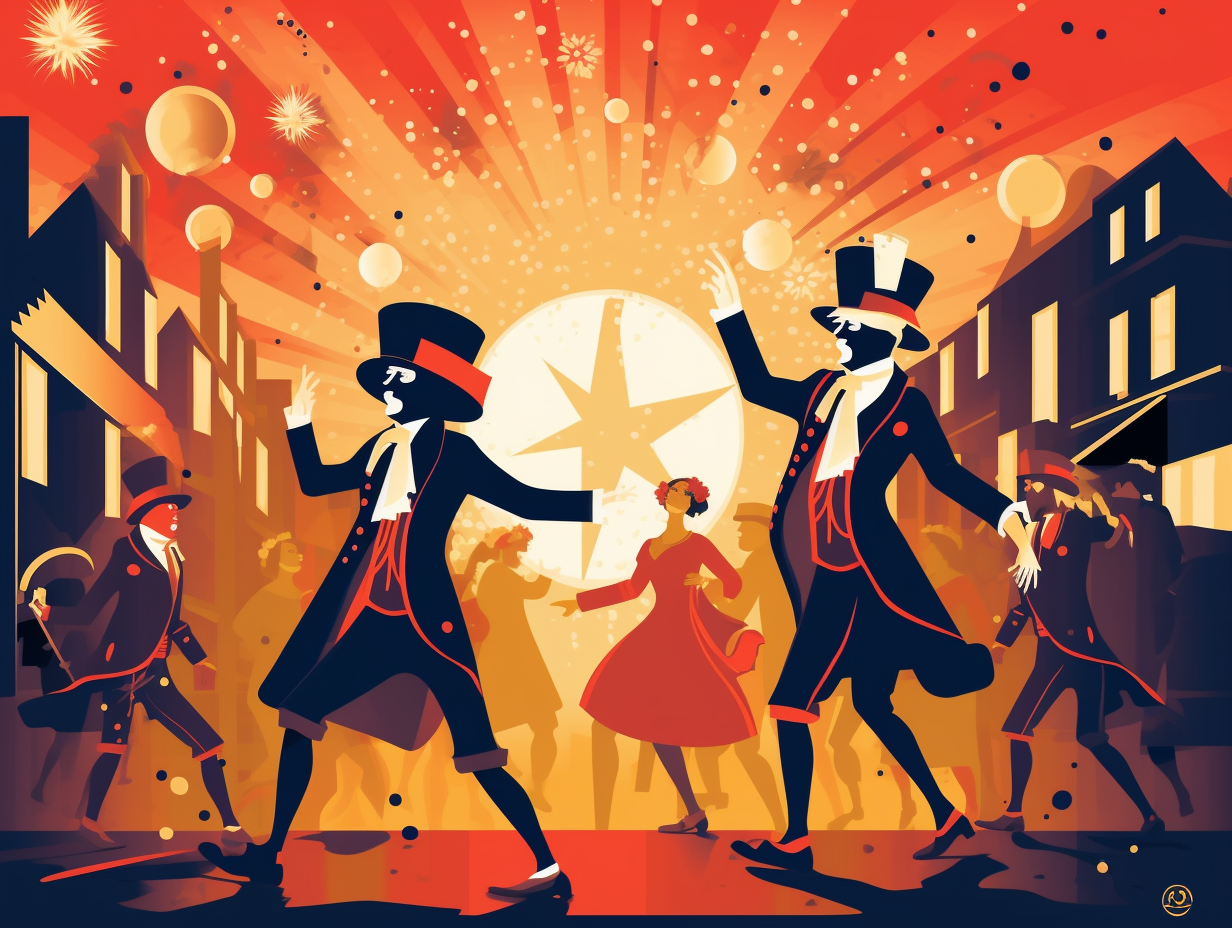
5. Isaac Barré: Nickname Master
Who knew that a rallying cry for American independence would start with a friendly shoutout from across the pond? It seems Uncle Sam's rebellious distant cousin, Irish MP Isaac Barré, coined the nickname that would make the Patriots' hearts swell with pride: The Sons of Liberty were first dubbed by Barré during a sympathy-inducing speech in Parliament! The uproarious 'Sons of Liberty': a motley crew of revolutionaries who rose from the flames of the Stamp Act protests in 1765, stormed the stage of colonial American history, and even commandeered a musical inspired by their very exploits. Though their adventures might be over, their flame of resistance remains a glowing ember in America's tale of freedom and independence.
Source => bostonteapartyship.com
6. Dickinson's Sassy Essays
Rolling in his grave: Colonial influencer and "Letters" writer John Dickinson might be chuckling in his powdered wig about how his essays as a sassy Pennsylvania farmer helped plant the seeds of rebellion and stamp out the notorious Stamp Act. Back then, his witty "Letters from a Farmer in Pennsylvania" had all the cool kids joining the anti-Stamp Act squad, giving British tax collectors a taste of early American resistance.
Source => constitutioncenter.org
7. Colonial Avengers Unite!
Back in the 1700s, before the Avengers "assembled" in theaters, a different kind of congress united to save the day: the Stamp Act Congress! Cue the colonial fanfare: This gathering of nine colonial delegations was the first time the colonies teamed up to challenge Parliament's authority, spawning the Declaration of Rights and Grievances and fighting against their taxing tyranny.
Source => americanhistorycentral.com
8. Tidy Boston Tea Party
If the Boston Tea Party was brewing today, it would surely give Marie Kondo a run for her money in the tidiness department: Despite the dumping of tea into the harbor, there was no looting or property damage, and the participants even went so far as to clean the ships' decks before leaving, with no reported injuries during the entire event.
Source => history.com
9. Stubborn Colonists Beat Delays
While sneaky stamps played an impromptu game of hide-and-seek with the American colonists, keeping them on their toes and rebellious spirits high, the British looked on in bemusement: The Stamp Act, meant to start on November 1, 1765, faced delays and did not take effect until November 9. Alas, the stubborn American determination proved too strong, and by March 18, 1766, the once-mighty Act was repealed in what can only be described as a parliamentary mercy killing.
Source => nps.gov
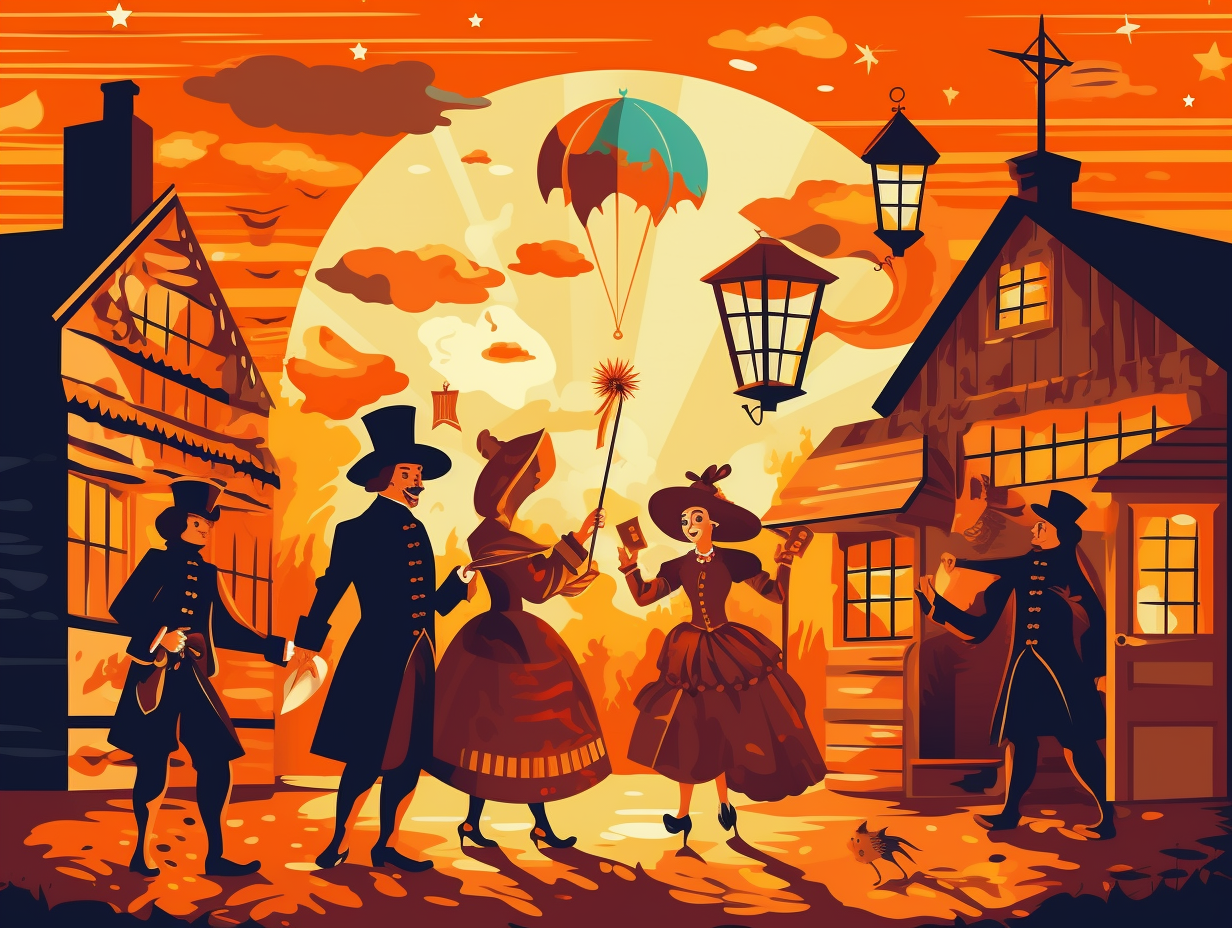
10. Franklin's Electrifying Opposition
Before Benjamin Franklin discovered electricity, he found the shocking power of opposition: Franklin initially supported the Stamp Act, but turned against it and played a pivotal role in getting it repealed in 1766 by lobbying Parliament and designing an impactful allegorical cartoon highlighting its consequences.
Source => loc.gov
11. Burning Stamps and Hanging Effigies
Before "stamping out" problems became a trendy catchphrase, America's colonists were literally setting fire to stamps and giving a new meaning to "hanging out" with tax collectors: The Stamp Act of 1765 sparked such outrage that protestors resorted to public demonstrations, hanging effigies of stamp collectors, and burning those controversial little squares in the streets, all of which galvanized the colonies against British taxation and fanned the flames of the American Revolution.
Source => loc.gov
12. Quippy Negotiator Franklin
Who said diplomacy was a bore? Picture Benjamin Franklin, the original jack-of-all-trades, donning his finest colonial garb, slyly wearing his negotiator cap, and deftly sweeping away British redcoats one nifty quip at a time: Despite the formalities, Franklin was a fierce opponent of the Stamp Act, using his political prowess in the Pennsylvania Assembly to draft protests, testify before Parliament, and even (unsuccessfully) attempt to strike a compromise with the Brits themselves.
Source => mtsu.edu
13. Pricey Marriage License Scare
It turns out 'paying the price of love' was quite literal back in the 18th century! Hysterical colonists were up in arms, fearing a good old-fashioned British wedding might end up with a massive marriage license tax: Turns out, the Stamp Act indeed required tax stamps on legal documents like newspapers, contracts and playing cards, leading to widespread protests and violence against the tax. However, interestingly, there's no evidence that marriage licenses ever needed stamps.
Source => jyfmuseums.org
14. Pre-Internet Cancel Culture
Before Pinterest, there were stamps: Rebels without a tweet, colonial Americans waged war on British tweets - er, - taxes, via good old-fashioned mob attacks and boycotts. In a dramatic display of pre-Internet era cancel culture, the Sons of Liberty and their colonial compatriots pushed back so hard that the Stamp Act got repealed: This little-known law, from all the way back in 1765, demanded that American colonists pay taxes on official documents - like newspapers, legal papers, and even playing cards - by using stamps purchased from British authorities. Their spirited defiance ultimately helped birth a new nation, but not before stoking the flames of revolution and driving a wedge between Britain and its colonies.
Source => loc.gov
Related Fun Facts





